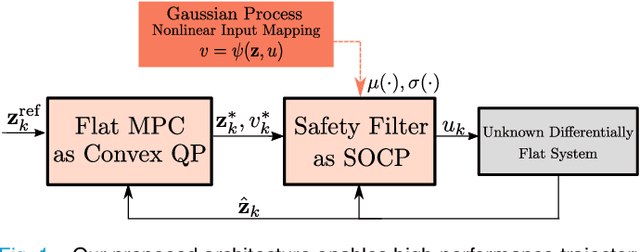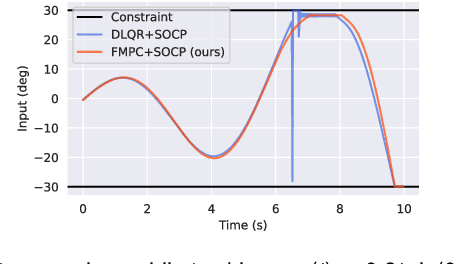Differentially Flat Learning-based Model Predictive Control Using a Stability, State, and Input Constraining Safety Filter
Paper and Code
Jul 20, 2023


Learning-based optimal control algorithms control unknown systems using past trajectory data and a learned model of the system dynamics. These controllers use either a linear approximation of the learned dynamics, trading performance for faster computation, or nonlinear optimization methods, which typically perform better but can limit real-time applicability. In this work, we present a novel nonlinear controller that exploits differential flatness to achieve similar performance to state-of-the-art learning-based controllers but with significantly less computational effort. Differential flatness is a property of dynamical systems whereby nonlinear systems can be exactly linearized through a nonlinear input mapping. Here, the nonlinear transformation is learned as a Gaussian process and is used in a safety filter that guarantees, with high probability, stability as well as input and flat state constraint satisfaction. This safety filter is then used to refine inputs from a flat model predictive controller to perform constrained nonlinear learning-based optimal control through two successive convex optimizations. We compare our method to state-of-the-art learning-based control strategies and achieve similar performance, but with significantly better computational efficiency, while also respecting flat state and input constraints, and guaranteeing stability.
 Add to Chrome
Add to Chrome Add to Firefox
Add to Firefox Add to Edge
Add to Edge